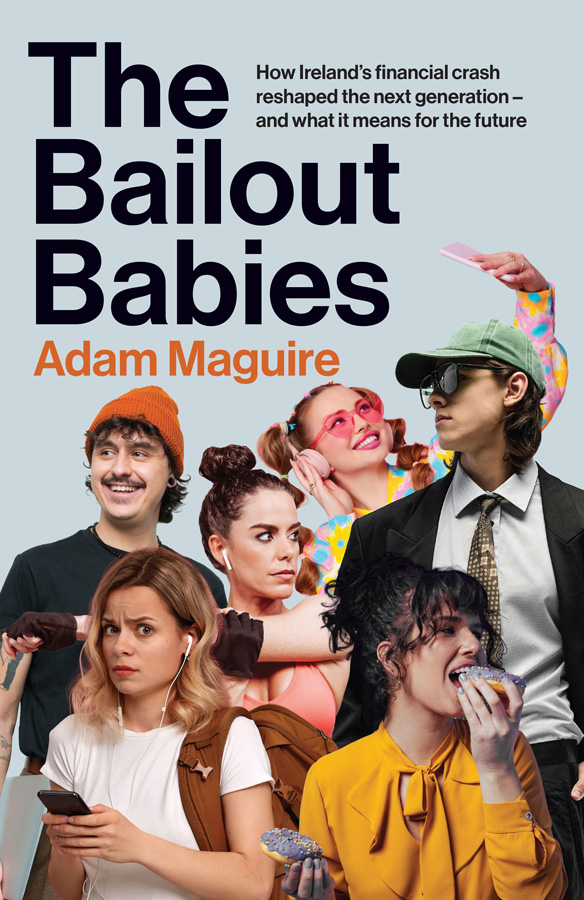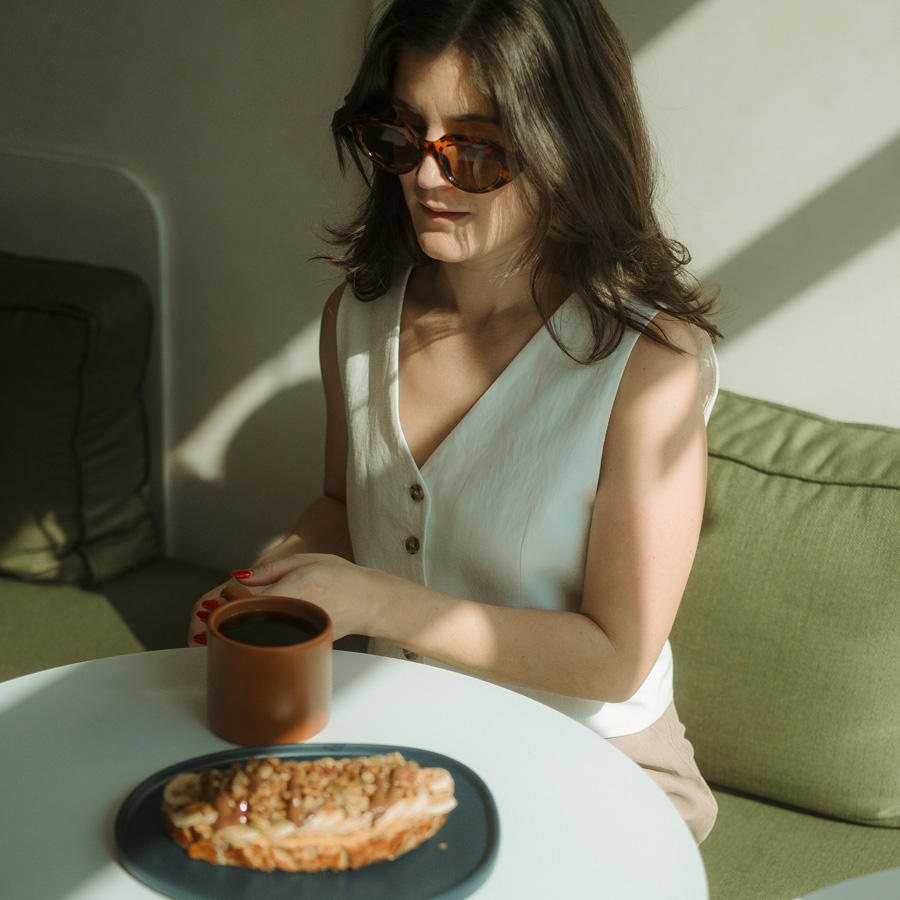They can’t afford to buy their own homes, but they can afford to make “little treats” an inherent part of their day …
“The ‘Treat Yo’Self ’ culture that has been created by the Bailout Babies differs fundamentally in its approach when compared to what’s come before,” explains Adam Maguire in The Bailout Babies, a new book that looks at how Ireland’s financial crash reshaped the next generation. “It is a unique combination – thrifty, timely and therapeutic. While previous generations might have focused their self-treating around events or set moments in their personal calendar or even specific tasks, young adults now are making them an inherent part of their day. In their personal contract, treats are no longer an added bonus – they’re right there in the basic terms and conditions of their lives. But at the same time, they’re not necessarily as expensive as the occasional treats of old.”
Trendy Treats: Meet Aisling – she’s 27, works in HR and has a sixth sense for where to find the best cinnamon bun within a 5km radius. She’s a Treat Seeker through and through: her week is punctuated by €5 coffees, niche chocolate bars, and the occasional “emergency” skincare splurge. Aisling is saving for a house – slowly – and she is money-wise, swapping nights out for “walk and talk” catch-ups. But she’s also not about to deny herself the small joys that make the daily grind bearable – as her Insta feed full of pastel pastries and oat flat whites makes clear. Her motto? “Life’s too short not to get the good croissant.” She’s not reckless – she’s just realistic: if she can’t afford a mortgage, yet, she’ll at least afford herself a little joy. But this is not a contradiction.
Because so much of the Treat-Seeker’s life is shaped by what she can’t do – including splashing out on branded butter while also having any hope of adding to her savings fund that week. But she’s only human and can only delay gratification for so long, and so she finds ways of adding in regular little treats to keep her going. And, as they say, if you’re going to do it wrong, do it right.
Like so many trends nowadays, Little Treat culture seems to have first found its voice on TikTok.
A post from influencer Morgan Venn in 2022, tagged with #littletreat and advocating an impromptu ice-cream, came with the message “idk who needs to hear this, but food isn’t just about nourishing your body, sometimes a surprise midday ice cream makes your day sweeter”. It has 4,600 likes.
The same year, yoga teacher Mel Douglas posted a picture of herself eating a doughnut in her car, describing herself as “a little treat girl to my very core”. “I don’t even make myself earn them because I’m practicing believing I’m inherently deserving of my own kindness at all times,” she explains.
And, as tends to happen with these little ripples in the social-media pond, they slowly gain momentum before exploding into a trend. By 2023 the littletreat hashtag had gained millions of views on TikTok and begun to attract the attention of newspaper and magazine feature-writers. Before long, major brands were trying to join the craze with thinly veiled ads for the potential treats they had to offer.
As the name suggests, Little Treat culture is about giving yourself small, regular treats – rather than one big one at a certain point in time – like at the weekend. This treat can take the form of a more-expensive-than-it-needs-to-be coffee or a café-bought cake to go along with your protein-packed, homemade lunch. Or maybe it’s deciding to splash out on a taxi home on a rainy day or buying that audiobook that you saw some influencer rave about or taking an extra-long lunch on your work-from-home day. It’s ultimately about creating a tiny-but-constant reward system as a means of knocking the edges off your personal frustrations, smoothing out your existential dread and getting yourself through the day. It’s almost like micro-dosing dopamine as a cut-price means of mood regulation.
… from their own financial prospects to the future of the planet – they’ve realised that life is hard enough as it is without adding to the misery.
But, as both Mel Douglas’ and Morgan Venn’s posts also allude to, the culture is also wrapped up in an attempted shift away from what younger generations see as a toxic attitude towards everything from work to dieting. It is ultimately an expression of this generation’s emphasis on greater self-care. It is also a response to their enhanced social awareness and daily exposure to the conflict, intolerance, ecological despair and hate that social media offers almost by default.
Treat Seekers do not see the point in denying themselves some of the little luxuries that life has to offer. If getting an expensive bar of chocolate – rather than a cheap one or none at all – is what it takes to make them feel better, then so be it. And they’ve collectively agreed not to feel guilty about that. They may be disciplined in their work, fitness and even finances, but they don’t punish themselves either.
Because standing against a backdrop of all of the serious things they have to worry about – from their own financial prospects to the future of the planet – they’ve realised that life is hard enough as it is without adding to the misery.
This may seem like a contradiction in the context of the Bailout Babies’ focus on saving and a desire to get a home of their own, but there is a psychological explanation for this that goes beyond a simple You Only Live Once outlook. This is actually a low-level example of the concept of “compensatory consumer behaviour”. This theorises that people will make purchases in response to a perceived deficit – be it within themselves or the world around them – in order to make themselves feel better.
After all, an expensive coffee doesn’t have much functional value … but the fact that it can get you through the day is priceless nonetheless.
Those purchases often have a greater psychological value than their functional value – meaning they are worth more to the buyer than the money spent. So, if little treats can act as a low-level form of self-medication but also help you to advertise your ideal self to the wider world, so much the better.
When your mammy told you that “Money can’t buy you happiness’, she should have added “but money can be exchanged for goods and services that can”. Sure, it doesn’t quite roll off the tongue in the same way, but it does reflect a reality that we’ve all experienced. After all, an expensive coffee doesn’t have much functional value – beyond perhaps a slight, short-lived energy boost – but the fact that it can get you through the day is priceless nonetheless.

The Bailout Babies: How Ireland’s financial crash reshaped the next generation – and what it means for the future by Adam Maguire (Gill Books), is out now.










